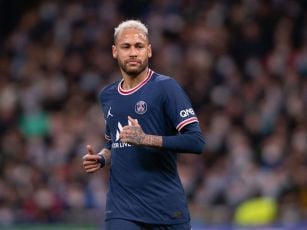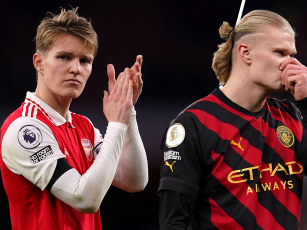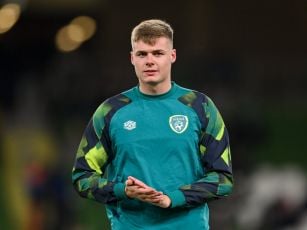One thing unites the West Germany teams that won their first two World Cups in 1954 and 1974.
Twenty years apart though those triumphs may be, it so happened that the teams they beat in each final proved to be just as memorable - if not more than - the West German winners.
In 1954, it was the Magical Magyars of Hungary with their star player Ferenc Puskas, who remain legendary even though they lost 3-2 in the final in Switzerland.
And in ‘74, the Orange-clad Dutch side led by Johann Cruyff is remembered just as much - if not more - than the Germany side which beat them in the Munich finale.
Yet that would be a disservice to Gerd Muller and Paul Breitner, who both scored crucial goals that day, as well as captain Franz Beckenbauer given that they are individually regarded as all-time legends of the game.
Lest we forget, the 1974 West Germany side happened to be the reigning champions of Europe.
Two years earlier at UEFA Euro 1972, West Germany were making their first ever appearance in a four-team tournament which had just been founded 12 years earlier.

First goal for West Germany during match between West Germany and the Soviet Union in the Heysel Stadium, in Brussels, on June 18, 1972, during the Final pf the UEFA European Cup of Nations. From left to right are: Gerd Muller of West Germany, Murtas Khurtsillava and goalkeeper Evgenij Rudakov of Soviet Union. West Germany won the match 3-0. (AP Photo)
They had qualified with relative ease, going unbeaten in a group featuring Poland, Turkey and Albania, before reaching the Euros in Belgium by defeating great rivals England (who they had faced in 1966 and 1970 World Cup epics) 3-1 on aggregate.
Muller, who arguably remains the most predatory striker of all time, was the key man en route.
Routinely scoring at least 30 Bundesliga goals per season at this point for Bayern Munich, where he played alongside fellow Bayern Bavarians Beckenbauer, Breitner, Munich-born one-club man Hans-George
Schwarzenbeck and goalkeeper Sepp Maier, Muller plundered seven goals in the qualifying campaign. There would be more to come from the short, squat but lethal forward.
Like Soviet Union, Hungary and hosts Belgium, West Germany knew they only had to win two games to become champions of Europe in the middle of June 1972.
For the Germans, the task would begin against Belgium on June 14th in Antwerp and Muller would be decisive - not for the first or last time.
A well-timed first half header got West Germany on the front foot midway through the first half, before he showed off his ability to ghost into space in the final 20 minutes to put the finishing touch on a typical laser-guided pass through by midfielder Gunter Netzer.
Belgium got a consolation goal late on but West Germany moved on to the final in Brussels where the Soviet Union awaited.

European Champions West Germany pictured after their 3-0 victory over USSR: (back row, l-r) Franz Beckenbauer, Coach Helmut Schon, Georg Schwarzenbeck, Jupp Heynckes, Gerd Muller, Dieter Hottges, Gunter Netzer; (front row, l-r) Erwin Kremers, Herbert Wimmer, Paul Breitner, Sepp Maier, Uli Hoeness. Picture by: S&G / S&G and Barratts/EMPICS Sport
Netzer, though, was not part of the Bayern Munich core of the team but was one of the great Borussia Monchengladbach additions to complement that Bavarian contingent.
The Westphalian club vied for supremacy with Bayern - often beating them to league titles - in Germany throughout the 1970s, and Netzer was the playmaker for his hometown club until 1973 when he left for Real Madrid.
By that time, one of the greatest passers of the ball that the world had ever seen, was a two-time Bundesliga winner with Monchengladbach beating runners-up Bayern to the league title in 1970 and 1971.
Alongside him at club and international level was another Monchengladbach hometown hero in the shape of Juup Heynckes, who would later achieve fame as a manager when he led Real Madrid (1998) and Bayern Munich (2013) to Champions League glory.
Heynckes was not as prolific as Muller was, but he is still the third highest goalscorer in Bundesliga history.
Netzer and Heynckes were far from being alone when it came to Monchengladbach players in the West German side.
Defender Berti Vogts (who was part of the ‘72 squad without actually playing) and midfielder Herbert Wimmer who was the defensive yin to Netzer’s yang were also two national team players who spent their entire pro careers at Borussia Monchengladbach during the club’s golden era, which coincided with Bayern’s European Cup-winning one.
Forward Erwin Kremmers and defender Horst-Dieter Hottges, who were both born in Monchengladbach and started their careers for Borussia before moving elsewhere in the ‘60s, were also part of the side the Germany side that started both the ‘72 semi-final win over Belgium and the final against USSR.
Thus, the Munich-Monchengladbach duopoly was a match made in heaven as every member of the starting XIs that won the 1972 Euros were either current members of both clubs or had played for them.
They lined up as a 4-3-3 at Brussels’ Heysel Stadium in the final against the Soviets.
Maier kept goal in front of his fellow Bayern central defensive partnership of Schwarzenbeck and sweeper-libero Beckenbauer. Flanking them on the left was their Bayern team-mate Breitner, while Hottges added some Monchengladbach flavour to the defence on the right.
In front of them, Wimmer would cover defensively in midfielder, with the playmaking duties given to Netzer, who was also joined by Bayern’s Uli Hoeness (later to become the five-time European Cup winners’ general manager and also recently granted day release from prison for tax evasion).
The forward-line was shared by Heynckes and Kremers, who flanked Muller.
The final would only be 27 minutes when Muller punctured the red-shirted Soviet defence for the first time.
It was a goal straight from the Monchengladbach-Munich union. Beckenbauer burst forward from defence as he often did so famously, prodding the ball towards Muller.
He flicked the ball backwards on the edge of the box for Netzer to acrobatically volley an outstanding shot that unfortunately cannoned off the crossbar.
Fortunately, though, it would cannon back off a defender towards Heynckes who was waiting to pounce on the right side of the box. He unleashed a vicious strike that Soviet keeper Yevhen Rudakov could only parry into the path of lucky No 13 Muller, who did what he so often did and poached a goal.
One-nil up and West Germany were in the ascendancy. The next goal would be created and finished off by a Monchengladbach stalwart.
On 52 minutes, No 9 Heynckes threaded a ball down the inside-right channel of the Soviet defence for the on-rushing Wimmer to latch onto. The No 6 fired across Rudakov but even though the keeper got a hand to it, the ball still rustled into the net - and even had it struck the post, Muller was standing unmarked if it required a tap in.
Six minutes later, it would be Bayern’s turn to make it 3-0 as Muller pounced again.
This time Schwarzenbeck entered the Soviet half and played it to Muller who was hovering deep. The Bayern striker then charged towards the opposition back-line, laying-off the ball to Heynckes, who then returned with interest to a spot behind the defence to Schwarzenbeck who had continued his own run forward but miscontrolled the ball.
Luckily the No 13 was there again to gather it and place a third goal into the Soviet net.
The 3-0 scoreline meant West Germany won the first of their three European Championships thus far and also meant captain Beckenbauer lifted an international trophy that would serve as a launching pad for another international triumph two years later on his home turf in Munich.
While that ‘74 World Cup final took place in the Bavarian capital, the Bayern contingent would again be joined the Monchengladbach-connected boys to do it all again, although Netzer’s involvement that time would be far more minimal.
Download the brand new OffTheBall App in the Play Store & App Store right now! We've got you covered!
Subscribe to OffTheBall's YouTube channel for more videos, like us on Facebook or follow us on Twitter for the latest sporting news and content.








